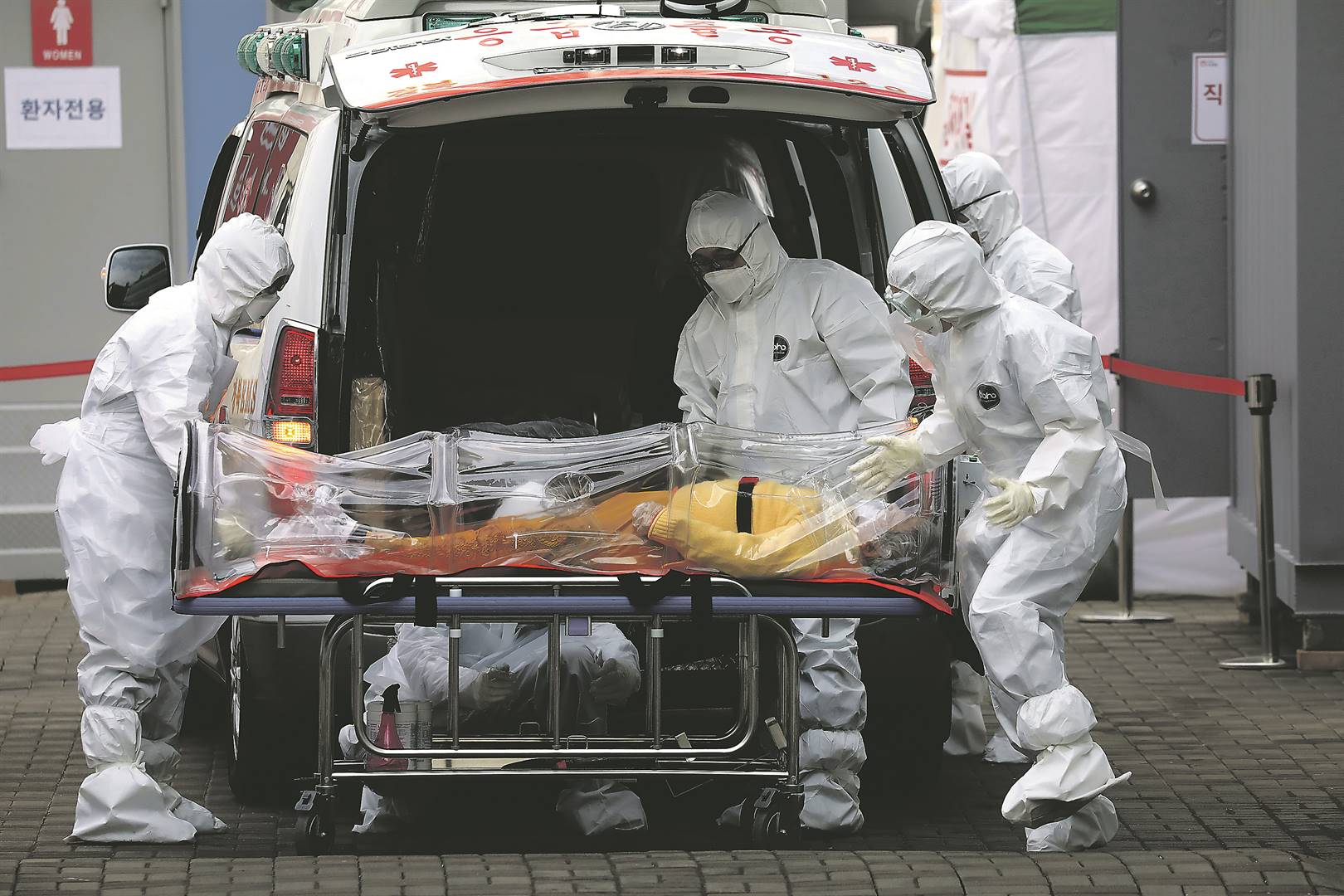
To put it in a nutshell, therefore, government has two weeks to define a post-lockdown strategy that works. What this requires is a full-scale prevention strategy, at whatever cost, which is able to co-exist with a re-opening of the economy, writes Alex van den Heever.
South Africa is a week into a social and economically damaging aggressive prevention strategy to prevent transmission of the virus SARS-CoV-2 which causes the disease Covid-19.
The experiences of other countries shows us that governments are central to addressing this kind of crisis. Countries that fail, fail because of their governments.
Countries that succeed, succeed because of their governments.
For instance, South Korea learned valuable lessons from the MERS outbreak which began for them on 4 May 2015.
An unprepared healthcare system inadvertently allowed a single infected person to pass the virus on to 28 patients at healthcare facilities he had visited.
Another person, infected by patient 1, was only isolated after he had infected 82 other people.
Importantly, 85 of the 186 confirmed MERS cases involved unsuspecting healthcare workers at the Samsung Medical Centre. Hospitals were totally unprepared for such a contingency.
The lessons learned from the MERS outbreak are instructive.
First, there was the issue of transparency.
During the epidemic the government did not release information on infected people or which hospitals had MERS patients. Information on employers where staff were infected was not disclosed to protect businesses from closing.
As a consequence of poor disclosure, vulnerable members of the public, such as older persons and those with pre-existing medical conditions, could not protect themselves.
Second, the testing protocol for MERS, prioritised travellers from countries identified as having a MERS outbreak.
Patient 1, however entered the country from Bahrain, which the South Korean authorities had failed to enter into the database. So the blind spot in the testing protocol initiated the spread.
And every infected person that falls through the net is a new outbreak.
Third, and crucial to the 2020 response, was the need to ramp up early warning systems backed up by accurate diagnostic testing.
During the MERS outbreak testing was cumbersome, with medical staff having to wait for days to receive laboratory-based tests (sound familiar).
Despite the development of a more rapid test kit, regulatory approval delayed its use during the outbreak.
When the SARS-COVID-2 outbreak began, despite being taken by surprise, as was the case with all countries, a completely different approach had been readied for such contingencies to the 2015 response.
Importantly, unlike South Africa and most of the rest of the world, South Korea understood that the MERS outbreak is a probable contingency that will inevitably recur multiple times in the future.
Unlike in 2015, they therefore quickly adopted four key approaches:
- A whole of government response to allow for rapid decision-making from the centre;
- They immediately authorised a rapid unlicensed Covid-19 test (clearly every new virus will require the immediate development of a test which will fall outside of regulatory approval processes);
- They rejected the demand-driven testing approach of 2015 in favour of a massive test-and-trace strategy (they now reportedly test up to 12 000 people a day) where test results are available by text or email within six to 12 hours, coupled with extensive real-time tracing using, inter alia, cellphone tracking software and CCTV; and
- Enforced 2-week quarantine periods for people entering the country coupled with testing; and framework for social distancing, including school closures and recommendations covering large gatherings.
Similar approaches to that of Korea have been pursued in Singapore and Germany, both of which have managed to contain the outbreak while maintaining a reasonable semblance of social and economic activity.
South Africa’s lockdown strategy, however, has been accompanied by:
- An anaemic testing strategy;
- A failure to protect frontline medical staff with personal protection equipment (PPE);
- Huge gaps in the required social protection measures necessary for income vulnerable communities that cannot be reached by our under-developed social security system;
- The closing down of businesses that could have been re-purposed to fight the epidemic (for instance the textiles industry which could produce anti-microbial masks and gowns); and
- A troubling trickling of information concerning test results (which come out with a significant and inexplicable delay given what has been possible elsewhere) and inpatient numbers in ICU, high care and general wards.
Aside from the blatant grandstanding and sometimes farcical political positioning going on, government is clearly concerned and making serious efforts to address the crisis.
However, this is far from business as usual.
There are no prizes here for "trying one's best".
The implications for the economy and social cohesion are too great to countenance any failure.
The only outcome that matters is the elimination of the epidemic together with a strategy that achieves a significant economic rebound.
Mere economic and social mitigation does not pass muster.
While the lockdown may have been the only option to address undetected (possible) community-based outbreaks (because of the absurdly restrictive testing protocol), this cannot be the strategy after 21 days.
If the economy does not re-open, the social and public health threats other than Covid-19 will escalate to unimaginable levels.
As it is unlikely that the outbreak will have been contained at the end of this period, prevention strategies of one form or another are therefore inevitable.
These are likely to include the continuation of social distancing measures (work from home if possible) and an enhanced testing framework.
Businesses will however need to reopen, but should be required to comply with safety measures for staff that need to come into work.
Communities that find social distancing difficult, will require intensive protection through rapid testing and the relocation of infected people to (proper) quarantine sites (through the use of hotels that have closed for the lockdown and due to the decline in tourist numbers).
The question, however, is whether adequate preparations are being made for the post-lockdown period.
If not, we could face the double threat of a resurgent epidemic together with a permanent collapse of a major part of the economy.
While there is some indication that mass testing and tracing is the strategy, with the purchase and apparent deployment of mobile testing units, the testing backlogs continue.
Furthermore, there is only a single mobile unit per health district - a laughably inadequate number.
Where are the other testing sites?
The suggestion that 10 000 community health workers are to be deployed for contact tracing is a nice soundbite, but is this enough? It doesn’t seem plausible given the scale of the required effort.
Within a context where government is plainly unable to properly address the mass production and distribution of PPE, or to even provide basic information on the epidemic (apart from delayed test results) one can be forgiven for being sceptical.
To put it in a nutshell, therefore, government has two weeks to define a post-lockdown strategy that works.
What this requires is a full-scale prevention strategy, at whatever cost, which is able to co-exist with a re-opening of the economy.
However, what we cannot afford is a half-baked prevention strategy based on crude lockdowns and piecemeal measures that comes at the price of the whole economy.
The clock is ticking, however, and failure is not an option.
- Prof. Alex van den Heever is Chair in the field of Social Security Systems Administration and Management Studies Wits School of Governance




 Publications
Publications
 Partners
Partners























